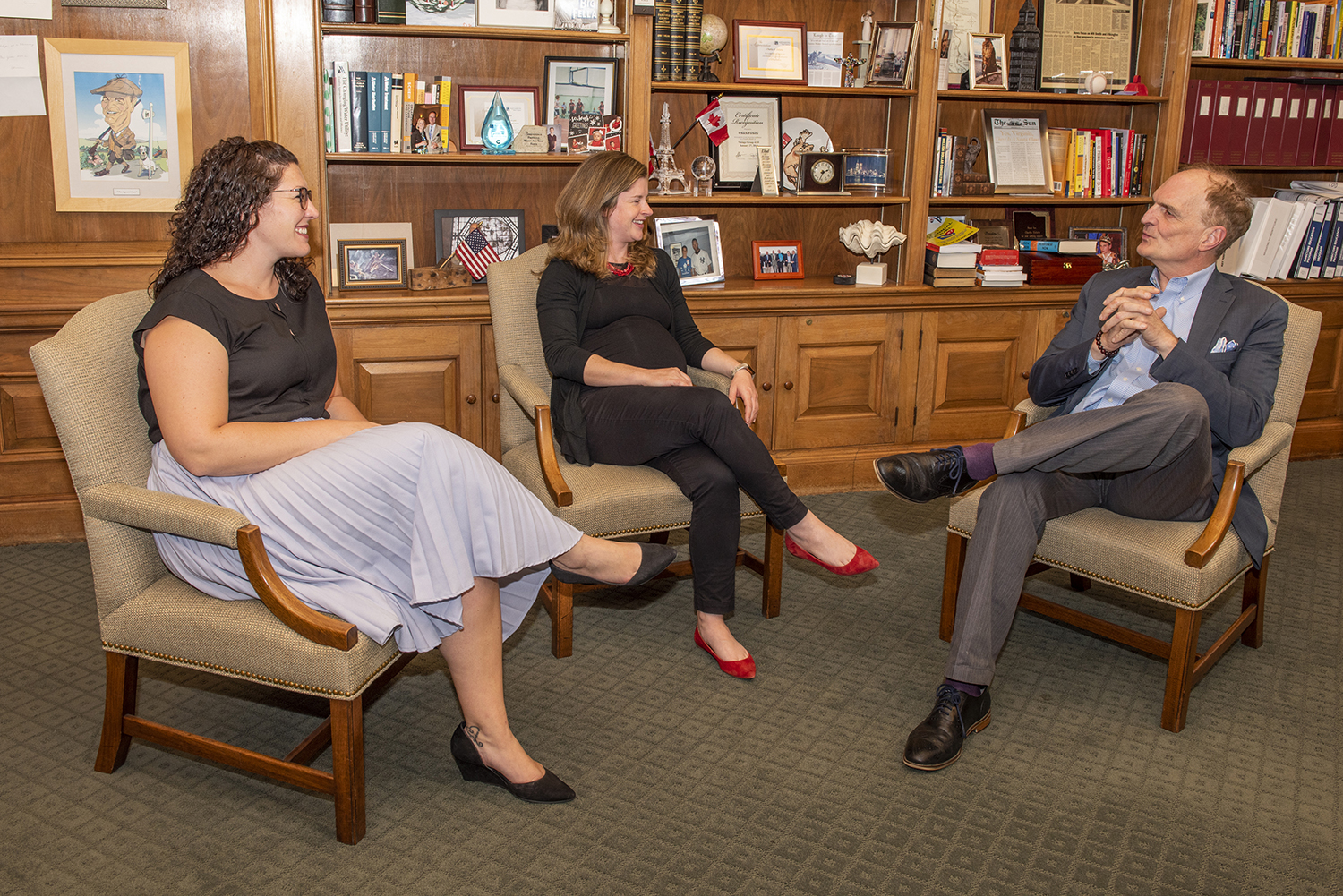
Capturing the Millennial Energy Force
Two of my favorite millennials are Kelli Meyer, Director for Student Involvement, University of Bridgeport, and Erin Santa Mercede, Director for Leadership Programs, Bridgeport Regional Business Council. Kelli and Erin also in leadership positions of Thrive, a millennial group promoting both the personal and professional development of its membership. Here we discuss professional development opportunities for Thrive members.
Is there anything else that can be said about millennials? For starters, they are no longer 20 years old. In fact, one of them, Pete Buttigieg, is mayor of South Bend, Indiana, and is running for president.
It is safe to say, however, that this is the most studied and scrutinized of all generations, and why would they not be? Born between 1981 and 1997, they are the largest generation on planet Earth and now constitute the majority of the workforce. They have unique buying habits and a healthy disregard for the ways of those of us who came before them, appear completely comfortable with change and disruption, were weaned on Nintendo, have been misunderstood and mislabeled, and when they came of age at the turn of this century, they were woefully unprepared in workplace behavior and business etiquette.
Millennials have been called “Generation Me” and have frustrated human resource professionals, for they do not hold to the traditional definition of corporate loyalty. They were affected and shaped by the events of 9/11, digital technology, the Internet and a host of social media tools, including Facebook and Instagram.
The Gallup organization has provided insightful research about employee attitudes and behaviors in the U.S. and has quantified the negative impact on the business community. Gallop estimates U.S. businesses as a whole are losing a trillion dollars annually due to voluntary departures from the workplace, and the cost of replacement can range from one-half to two times the employee’s annual wage. A walloping 51% of our employees are searching for a new job or have an active eye on the market and, equally as worrisome, two-thirds of the workforce is not engaged, with some 53% giving the minimum effort required.
By sheer power of numbers, it behooves corporate America to understand and entice the millennial cohort to our shores, so to speak, for if their collective energy can be harnessed, they are at once creative, collaborative and entrepreneurial. As business leaders, we must tap into their organizational value, develop strategies to attract better candidates, shorten ramp time for new employees, help them maximize their potential, reduce voluntary turnover so they will ignore the siren song of other job offers, and even empower them to recruit new talent among their generation.
A Five-Point Plan to Attract, Retain and Motivate Millennials in the Workplace
(1) Promote a sense of purpose, a “raison d’etre.” Deloitte asserts that 92% of millennials believe businesses should be measured by more than profits—a factor that influenced 192 top CEOs in the U.S. to issue a new statement this past summer, calling on business leaders to commit to balancing the needs of shareholders with customers, employees, suppliers and local communities.
(2) Provide real-time feedback. Millennials are neither satisfied nor happy with a once-a-year performance review. They grew up in a world of online, instantaneous feedback, and they expect it at work.
(3) Creativity is critical to our millennial employees. They are strongly influenced by how innovative a company is, and they worship at the altar of workplace technology. They will be drawn toward work environments with sophisticated technology.
(4) “What’s in it for me?” Training and development carry paramount importance. Millennials will leave without it. The boomers before them were far too patient and forgiving on this front. Millennials are not.
(5) Seek input and be open to new ideas. Millennials want to influence. They are the drivers of digital disruption, and they are comfortable with transformational change. Smart organizations will want to shape their culture and corporate environment with receptivity to millennial input and needs.
This generation’s workplace traits are unprecedented, and millennials have become the not-so-silent majority. Organizations open to doing things differently will be best positioned to capitalize on this wealth of human talent. Chuck Firlotte President and CEO Aquarion Company
Hello Chuck! I love this article and topic overall! Look forward to learning more about your work!